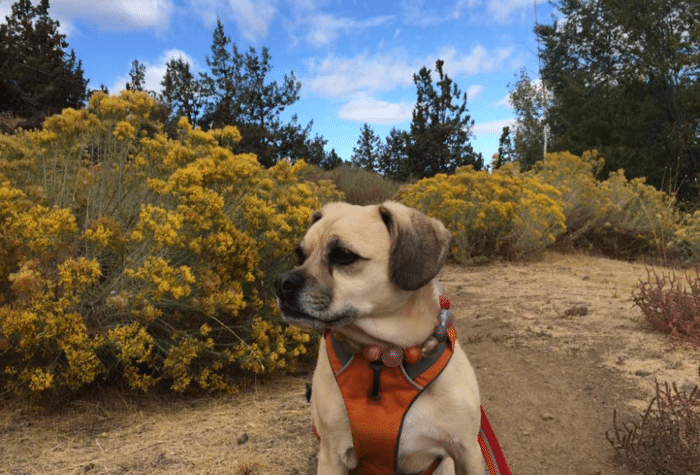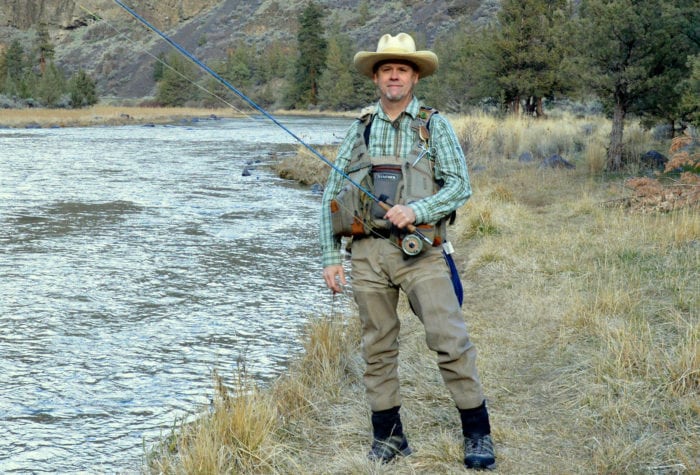North Springs Exclosure Fence Construction
Jeremy Austin
Organizer: Jefferson Jacobs
Dates: April 25-28, 2024
Region: Greater Hart-Sheldon
Difficulty Rating: Level 4: Strenuous
Maximum Group Size: 15 participants
About the place
Beatys Butte is part of the vast homelands of the Nüümü or Northern Paiute people, who are members of many tribal nations, including the Burns Paiute Tribe and the Confederated Tribes of Warm Springs. The Northern Paiute’s traditional stewardship and cultural activities in the Beatys Butte region include root digging, hunting, and gathering of plant medicines. This project is part of an “ecocultural” restoration plan that ONDA has developed for the North Springs property with the participation and advice of Wilson Wewa Jr, a Northern Paiute elder and Traditional Ecological Knowledge (TEK) holder. Our vision is to restore a reciprocal relationship between humans and the land at North Springs, through which restoration actions to repair ecological damage and enable the revitalization of traditional practices by Indigenous peoples.
Beatys Butte is an integral part of the “land between” Hart and Sheldon National Wildlife Refuge in BLM’s Lakeview District south-central Oregon. Explore ONDA’s Greater Hart-Sheldon Storymap to learn more about this region. The area on and around the Beatys Butte supports a variety of wildlife and includes winter and migratory habitat for pronghorn antelope, and habitat for sage grouse, pygmy rabbits, western big-eared bats, ferruginous hawks, burrowing owls, desert and short-horned lizards, and other mammals and birds. The Beatys Butte Sagebrush Focal Area, is one of the six most important areas identified by the U.S. Fish and Wildlife Service for the long-term survival of the Greater sage grouse. The small springs and associated “mesic” habitat provide critical food resources to the wildlife in the area, serving as oases that are disproportionately important compared to their size.
This trip will take place on a 400 acre conservation property owned by the Oregon Desert Land Trust (ODLT) on the north side of Beatys Butte.
About the stewardship work
This trip is part of a series of projects that will provide a demonstration of what habitat restoration work can accomplish in the Beatys Butte area. By working to restore the hydrology and plant communities around springs and other mesic areas at North Springs we will be providing an example of what these areas can potentially look like: thriving oases that have been missing from the surrounding landscape for over 100 years. This project will support ONDA’s efforts to collaborate with the BLM on expanding restoration work to the dozens of other springs and mesic areas on public lands surrounding Beatys Butte.
On this trip we will focus on addressing the root cause of ecological degradation at this site: over a century of livestock grazing. We will do this by continuing to construct a fence around nearly the entire 400 acre property to protect the restoration work that ONDA is implementing on sensitive springs and mesic areas, and allow for passive restoration beyond the boundaries of our active restoration efforts. ONDA is constructing this fence to be as “wildlife friendly” as possible. This means that it will be low enough for deer to jump over easily with smooth wire on top and bottom to protect jumping deer as well as pronghorn slipping underneath. And to make it more visible to the sage grouse living nearby, we will be hanging sturdy reflectors at regular intervals along the fence. In 2023 we constructed nearly all of the anchors for the fence. On this trip we will mostly be stretching wire and pounding posts.
Trip timeline
- Thursday, April 25, 5 pm: Meet at the North Springs/Beatys Butte property. You can set up camp and get settled in with dinner. We’ll have an evening orientation about the next days’ work.
- Friday-Saturday, April 26-27 , 8 am to 4 pm: Two full work days away from camp with plenty of tasks to choose from: hauling fence materials and rocks for anchors, post pounding, and clipping wire to posts all while chatting and enjoying huge wide open views.
- Saturday, April 28 8 am: After breakfast we can pack up camp and head on home!
Camp
We will be car-camping near to the property and restoration site at an undeveloped location with no running water or facilities, just wide open sagebrush steppe. ONDA will provide some additional amenities such as shade/rain tarps, a few tables and extra chairs and a latrine. The access road is an unmaintained dirt road, but it is not too much for a small SUV such as a Subaru.
Difficulty
This trip will be physically demanding with a lot of hiking ver the course of the day along the fence-line. There will be quite a few fence posts to haul, and wire to unroll. However there will also be less strenuous tasks such as clipping wire to posts and installing sage-grouse flagging. It is likely to be hot and dry, without reliable shade at the work site. There are always opportunities to rest and work at your own pace.
Participant responsibilities
Participants are responsible for their own food, water and camping gear, as well as transportation to and from the trip. Sturdy off-trail ankle-high boots are required for this trip. We recommend bringing your own work gloves to provide a comfortable fit, but it is not required. Potable water is not available at the campsite, so volunteers will need to bring sufficient water for drinking and cooking during the course of the trip.
Gear provided
ONDA will provide work gloves if you don’t have a pair, all the tools and materials required for the work, safety gear and excellent guidance in the field.
Registration
An ONDA registration application and medical form are required for this trip. Check the box next to each trip you would like to attend.
Join Waitlist
You will receive a confirmation email within 2 weeks of submitting your form. The confirmation email will provide information regarding which trips you are on the “participant list” for, and which trips are full, and therefore you have been placed on the “wait list.”
Six weeks before the start of the trip, the trip leader will send out an RSVP to make sure everyone is still able to participate. Based on RSVPs, open spaces will be backfilled with people from the waitlist.
Three weeks before the trip start date, registered and confirmed participants will receive driving instructions, maps, and additional information in an email sent by the trip leader
If you have any questions in the meantime, please don’t hesitate to contact the trip leader.
Your Trip Leader
This trip will be led by Jefferson Jacobs. If you have questions, you can contact him at jjacobs@onda.org
Meet JeffersonBeatys and Mahogany Buttes
There is no developed trail to the top, so the hike begins when you have found a decent spot to park your vehicle. Beatys Butte at 7,885 above sea level […]
Read More
